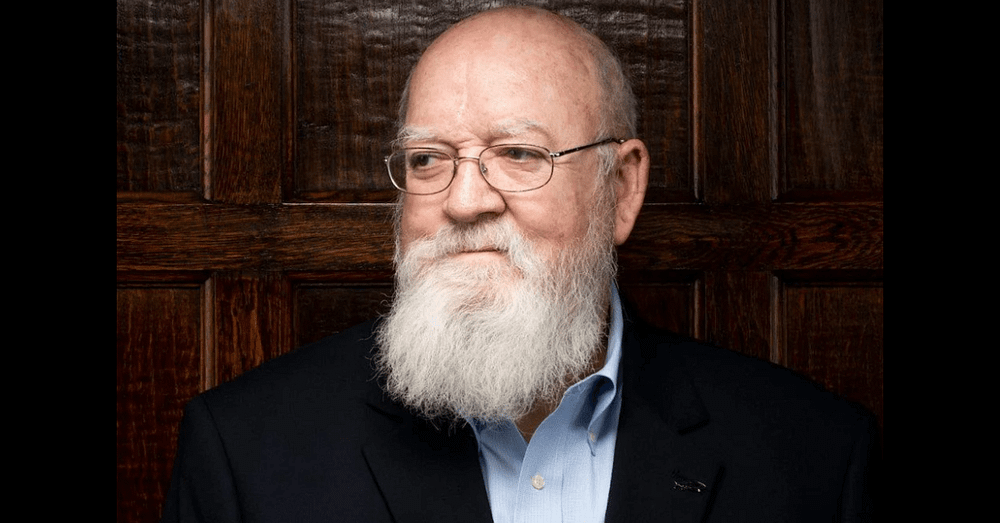According to Owen Flanagan, Daniel Dennett happily accepted that there is a way things seem to us. However, is that the same thing as accepting the philosophical notion of qualia?

Despite the general view, the philosopher Daniel Dennett believed (or accepted) that “qualia are for real”… at least according to the American philosopher Owen Flanagan.
Flanagan wrote the following:
“Qualia are for real. Dennett himself says what they are before he starts quining. Sanely, he writes, ‘‘Qualia’ is an unfamiliar term for something that could not be more familiar to each of us: the ways thing seem to us’ [].”
Saying “what [x’s] are” isn’t the same as believing that x’s are “for real”. I can, after all, say what goblins are, without also believing that they are real.
Yet, okay, there are ways things (i.e., certain conscious mental states) seem to us…
But where do we go from there?
More relevantly, is accepting that there is a way things seem to us the same as accepting the philosophical notion of qualia?
Dennett might well have (initially) accepted qualia. (“Dennett himself says what they are before he starts quining.”) However, he certainly didn’t accept what he took to be the main philosophical account of them to be. [“Seemings [which are] atomic, intrinsic, exhaustive, ineffable, and so on.” See here.] In other words, such qualia (at least in Dennett’s view) are mere “quicksilver”. (Quicksilver? Things with very little scientific or philosophical point?)
So can we untangle the way things seem to us from qualia?
Flanagan (again) put Dennett’s position on qualia in the following way:
“To think this, Dennett must think that the identification of qualia with the ‘way things seem to us’ must be interpreted as meaning that a quale is a state such that, necessarily, being in it seems a certain way and, necessarily, there is nothing else to it.”
On this account of Dennett, if quale x “seems a certain way”, then it seems a certain way…
There is nothing else to it.
So perhaps Dennett’s account of qualia (if via Flanagan) raises certain questions.
If Dennett’s account of qualia weren’t broadly accurate (i.e., that they are “atomic, intrinsic, exhaustive, ineffable”), then qualia wouldn’t do all the work their supposed to do for anti-physicalists and many others. In other words, such people actually require Dennett’s account of qualia to be accepted. And that’s because without it their own qualia-based case against physicalism simply wouldn’t work. [Note: some physicalists accept the existence of qualia. See here.]
So it’s not just the case that Dennett wanted to portray qualia in this (extreme) particular way: it seems that qualia enthusiasts do so too. That’s because (again) if qualia aren’t taken to be as Dennett believes they’re taken to be (i.e., by qualiaphiles), then what would be the (philosophical) point of them?
More broadly, much qualia-talk is designed to end up with Flanagan’s final statement — “there is nothing else to it”. That nothing else to it is used to guarantee qualia complete freedom and autonomy from any physical, functionalist and/or scientific account (or description) of them.
As it is, Flanagan isn’t entirely happy with Dennett’s account.
Flanagan Explains His Own Position
Owen Flanagan wrote:
“[] I claim that the concept simply doesn’t need to be understood that way. The alternative interpretation is that a quale is a state such that being in it seems a certain way. This interpretation is better because it allows us the concept of the way things seem without making seemings atomic, intrinsic, exhaustive, ineffable, and so on.”
This is a hard passage to grasp.
On first reading, Flanagan seemed to be simply repeating Dennett’s own account of qualia — if with slightly different wording.
Thus, in one passage Flanagan says that Dennett identifies qualia “with the ‘way things seem to us’”. On Flanagan’s own account, on the other hand, a quale is “a state such that being in it seems a certain way”.
So is there a substantive difference between the way x seems to us, and quale x is a state such that being in it seems a certain way?
That question just asked, I believe that Flanagan’s point is the following:
For qualiaphiles, qualia seeming a certain way is (literally) the end of the story…
To Flanagan, on the other hand, being in state x, as well as quale x seeming a certain way to us, isn’t the end of the story.
On this reading, then, we have an explanation as to why Flanagan concluded with the following words:
“This interpretation is better because it allows us the concept of the way things seem without making seemings atomic, intrinsic, exhaustive, ineffable, and so on.”
Thus, Flanagan’s interpretation is better (to Flanagan at least) because even though there are indeed brute seemings — that’s not the end of the story…
Yet surely that wasn’t the end of the story for Dennett either!
So perhaps Flanagan’s point is that we can accept that there is a way things seem, yet not also take these seemings to be (Flanagan quotes Dennett’s terms) “atomic, intrinsic, exhaustive, ineffable, and so on”.
Flanagan’s conclusion (if I have it right) can be summed up in this way:
(i) Because Dennett believes that qualia are construed as being “atomic”, “intrinsic”, “exhaustive” and “ineffable”,
(ii) then to qualiaphiles, that must be the end of the story.
Does this mean that Dennett is taking the qualiaphiles and anti-physicalists at their word?
Flanagan, on the other hand, isn’t taken them at their word.
Instead, Flanagan’s “alternative interpretation” is that “a quale is a state such that being in it seems a certain way”. Yet that isn’t the end of the the story for Flanagan. Indeed, Flanagan supplies lots of very persuasive and interesting philosophical and scientific detail as to why seemings aren’t — or even can’t be — the end of the story.










No comments:
Post a Comment